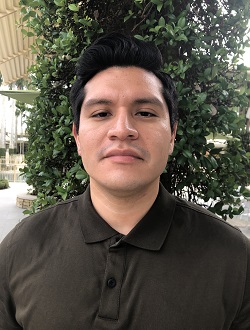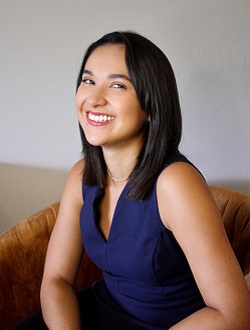Valentine’s Day often brings a mix of emotions. For some, it’s a celebration of love and connection; for others, it’s a reminder of loneliness or past heartbreak. If you’re on a journey of healing—whether from past relationships, trauma, or personal struggles—dating during this season can feel daunting. The good news is that you don’t have to have it all figured out to explore meaningful connections. By approaching dating with self-awareness, intentionality, and care, you can navigate this experience in a way that honors your healing.
Checking in With Yourself: Are You Ready to Date?
Healing isn’t a straight path, and there’s no “perfect” time to start dating. However, it’s essential to take a moment to assess your readiness before diving in. Consider whether you are seeking a relationship to fill a void or if you are genuinely open to connecting with someone. Reflect on whether you have a sense of self-worth that doesn’t depend on external validation and whether you feel comfortable setting boundaries and expressing your needs.
Some questions you can ask yourself to check-in with yourself are:
- Am I seeking a relationship to fill a void, or am I genuinely open to connecting with someone?
- Do I have a sense of self-worth that doesn’t depend on external validation?
- Am I comfortable setting boundaries and expressing my needs?
Being honest with yourself is key. If your answers indicate that you’re grounded and self-aware, you may be ready to explore dating. If not, it’s okay to focus on your healing journey a little longer.
Managing Triggers While Dating
Healing often means navigating triggers, especially when forming new connections. Here are strategies to manage triggers if they arise:
- Identify Your Triggers: Take time to reflect on what situations, conversations, or behaviors might cause discomfort or bring up past pain. Knowing your triggers allows you to prepare and set boundaries.
- Pause and Breathe: If you feel triggered during a date, practice grounding techniques like deep breathing or using a sensory focus (e.g., touching a textured object or sipping water). These can help you stay present and calm.
- Communicate When Ready: If a trigger comes up, it’s okay to take a moment before explaining your feelings. You might say, “I need a moment to process something,” or “Can we pause this conversation for now?”
Managing triggers while dating can be challenging, but incorporating practices like journaling can help. Explore the benefits of gratitude journaling in our post titled “Starting the Year with Gratitude“.
Managing Stress, Anxiety, and Fear
Dating can be nerve-wracking, especially when you’ve been hurt in the past. The fear of rejection, the uncertainty of new dynamics, and the memories of past pain can create a cocktail of anxiety and stress. To navigate these feelings, start by preparing yourself mentally before a date. Affirmations can be a powerful tool—remind yourself that you are worthy of love and connection, no matter your past. Visualizing a positive experience can also help shift your mindset, allowing you to approach the date with curiosity rather than fear. Setting small, manageable goals, like simply enjoying the conversation or focusing on shared interests, can keep the experience grounded and less intimidating.
After the date, prioritizing self-care can make a significant difference in managing any lingering stress or anxiety. Create a comforting ritual to decompress and process your emotions. This might involve journaling about what went well and what you’ve learned, taking a relaxing bath to soothe your senses, or watching a favorite movie to unwind. These practices help you recharge and maintain balance, ensuring that the experience of dating doesn’t overshadow your overall well-being. Remember, your healing journey is unique, and taking intentional steps to care for yourself allows you to approach each new connection with greater confidence and clarity.
Regulating Emotions During and After a Date
Emotions can run high when you’re dating, especially if you encounter unexpected situations. Here’s how to regulate your emotions:
- Use the “Name It to Tame It” Technique: Label your emotions as they arise. For example, “I’m feeling anxious because this conversation reminds me of a past experience.” Acknowledging emotions can reduce their intensity.
- Engage in Grounding Exercises: Techniques like the 5-4-3-2-1 method (naming five things you see, four you can touch, etc.) can help you stay present.
- Reach Out for Support: Talk to a trusted friend, therapist, or loved one if you’re feeling overwhelmed. Sometimes sharing your experience helps you process emotions more effectively.
Encouraging Connection, Growth, and Openness
Healing doesn’t mean closing yourself off from others. In fact, dating can be an opportunity for growth and connection. While you don’t need to share every detail of your healing process early on, being open about your journey can foster deeper connections. Show curiosity about your date’s experiences and feelings, and practice active listening to build trust and mutual respect. Sharing your own thoughts and emotions, even when it feels vulnerable, strengthens bonds and creates space for authentic connection. Remember, vulnerability is a sign of strength, and every interaction—whether it leads to a lasting relationship or not—is an opportunity to learn more about yourself.
Fostering connection also requires patience and self-compassion. It’s important to acknowledge that building trust and intimacy takes time. Allow yourself to move at a pace that feels comfortable and sustainable. Encourage open communication by expressing your intentions and asking thoughtful questions about your date’s values and goals. This creates an environment where both parties feel respected and understood. Over time, these small acts of openness and curiosity can lead to a deeper understanding of one another, paving the way for meaningful and fulfilling connections.
Self-Care: The Foundation of Healthy Dating
Prioritizing self-care ensures that you stay grounded while dating. Reflecting on your experiences through journaling helps you track your growth and identify patterns. Setting boundaries protects your time and emotional energy, allowing you to focus on relationships that align with your values. Engaging in mindfulness practices, such as yoga, meditation, or nature walks, helps reduce stress and keeps you connected to the present moment. These habits allow you to approach each new connection with clarity and confidence.
Self-care also includes nurturing your emotional well-being by acknowledging and honoring your feelings. It’s okay to feel nervous, excited, or even uncertain while dating. Giving yourself space to process these emotions can prevent them from becoming overwhelming. For example, taking a few moments before and after a date to meditate or engage in deep breathing can help you stay balanced. By integrating these small but meaningful practices, you create a foundation of self-trust and resilience that supports you in navigating the ups and downs of dating.
Physical self-care is equally important. Prioritize activities that nourish your body, such as maintaining a healthy diet, staying hydrated, and getting enough sleep. Physical wellness directly impacts your emotional state, and feeling good physically can enhance your confidence and overall dating experience. Remember, self-care is not a luxury but a necessity, especially when you are opening yourself up to new connections. By prioritizing your needs, you are better equipped to show up authentically and fully in your relationships.
Celebrating Your Journey
Healing is a process, and dating while healing is a unique part of that journey. Celebrate your courage to explore new connections and honor the progress you’ve made. Even if things don’t go as planned, remember that each step forward is a testament to your resilience.
This Valentine’s Day, give yourself permission to approach dating on your terms. Whether you’re swiping on apps, meeting someone new, or reflecting on your growth, remember that you are worthy of love and connection—starting with the love you show yourself.
If you find this journey overwhelming, don’t hesitate to reach out to a trusted friend, counselor, or therapist for support. You’re not alone, and there’s strength in seeking help. Love—in all its forms—is a beautiful part of life, and it begins with the relationship you have with yourself.
Starting your day with a mindful morning routine can significantly impact your emotional well-being and make navigating the dating world while healing easier. For tips on creating a routine that supports your mental health, see our post on Mindful Mornings.

![[2.12] Dating While You’re Healing](https://swflcounsel.com/wp-content/uploads/2025/02/2.12-Dating-While-Youre-Healing.jpg)







